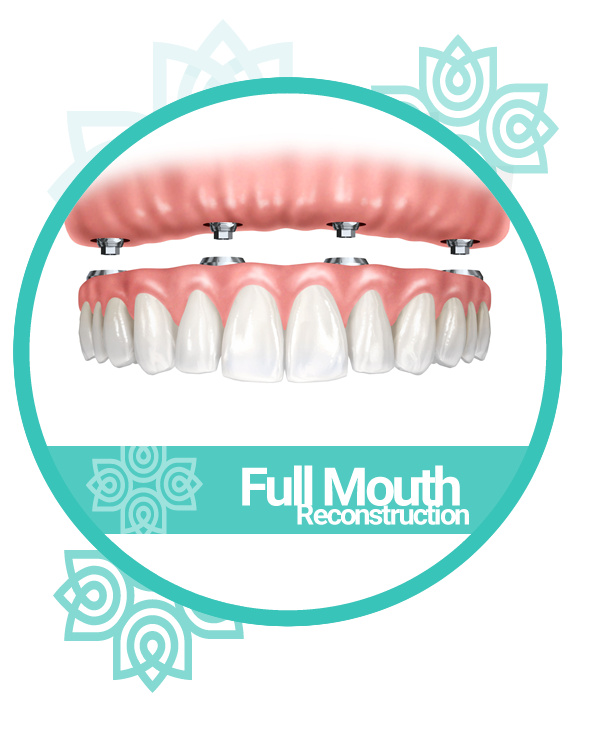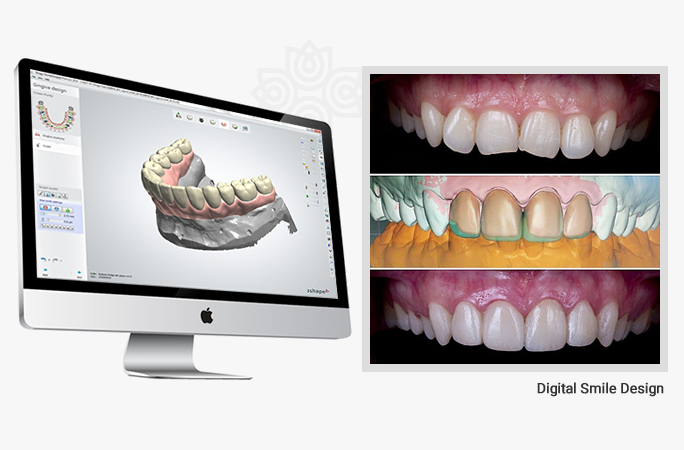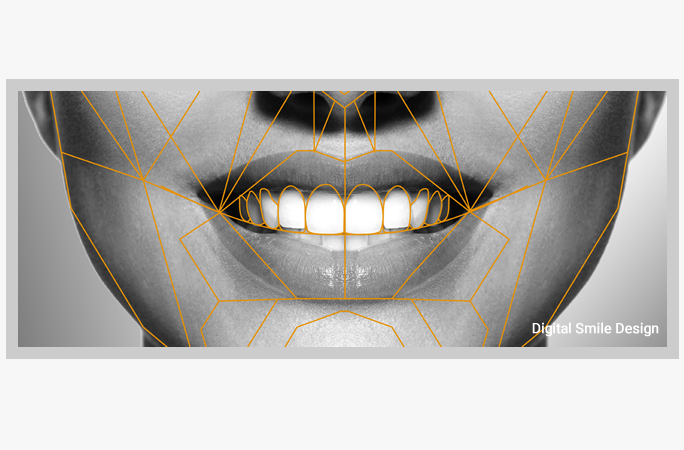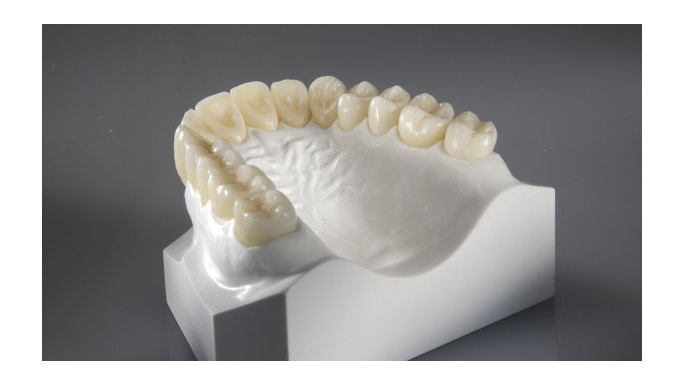
FULL MOUTH RECONSTRUCTION
Full mouth reconstruction typically involves general or restorative dentists (performing procedures like crowns, bridges and veneers), and can incorporate dental specialists like periodontists (specializing in the gums), oral surgeons, orthodontists (specializing in tooth movements and positions) and endodontists (specializing in the tooth pulp).
The need for full mouth reconstruction may result from: Teeth that have been lost due to decay or trauma, teeth that have been injured or fractured or teeth that have become severely worn as a result of long-term acid erosion (foods, beverages, acid reflux) or tooth grinding.
STEPS INVOLVED IN FULL-MOUTH RECONSTRUCTION
Patient Education: Patients are educated about their health and condition of their teeth. Treatment options are explained to patients.
| Diagnosis: Initial comprehensive exams are performed to assess general health of your teeth and gums. | |
|---|---|
| Digital Imaging: using advanced 2D and 3D digital imaging more information is gathered about your mouth. | |
| Diagnosis Models: Models of your mouth is taken and finalized treatment plans are designed. | |
| Advanced Treatment Planning: Treatment plans and options are presented to patients. |


DENTAL TREATMENTS PERFORMED DURING FULL MOUTH RECONSTRUCTION
- Periodontal Treatments, cleaning, scaling and root planing
- Root Canal Treatments
- Infection Control and Oral Surgery Procedures
- Fixed Restorative Treatment: Filling, crowns, bridges
- Removable Restorative Treatment: Partial Dentures and Full
- Dentures
- Use of Implant supported dentures and crowns
- TMJ Treatments
- Implant Placements: Multiple teeth or single tooth

REASONS TO BE A CANDIDATE FOR FULL-MOUTH REHABILITATION
|
|---|












